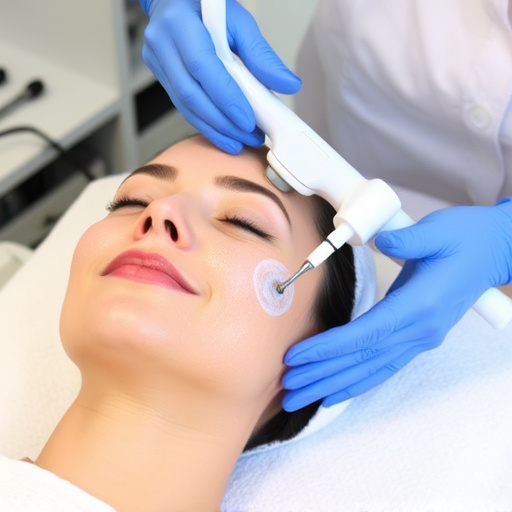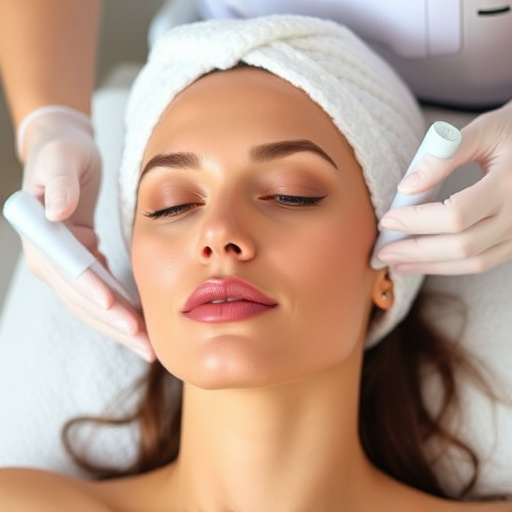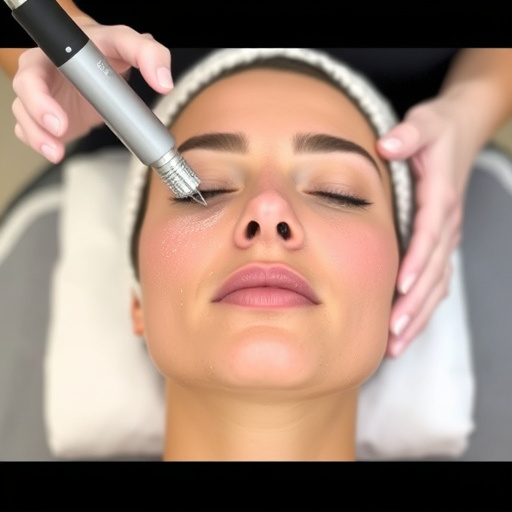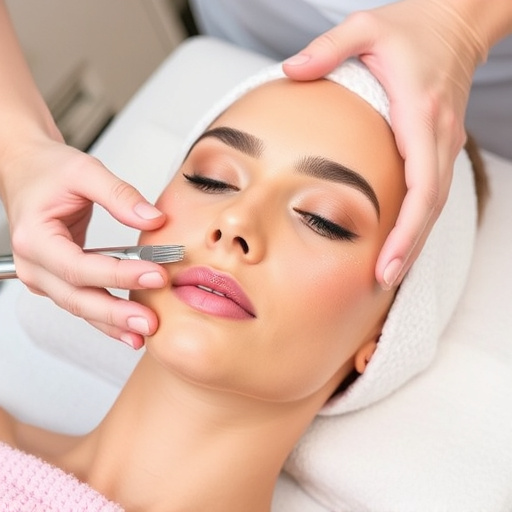Hormonal acne, caused by fluctuating hormones and increased sebum production, requires identifying triggers like stress, diet, medications, and treatments. Endocrinologists diagnose underlying hormonal imbalances (e.g., PCOS, thyroid disorders) through blood tests and symptom analysis, offering tailored non-surgical treatments and hormonal adjustments for effective hormonal acne treatment. Early intervention prevents skin damage; advanced technologies and medical spa services provide lasting solutions for improved skin health.
“Uncovering the complex relationship between hormones and skin health, this article explores when hormonal acne treatment demands endocrinologist support. Hormonal acne, a common yet often misunderstood condition, arises from imbalances in sex hormones. Effective management involves understanding triggers like menstrual cycles or birth control. This guide delves into diagnosis methods, emphasizing the role of medical professionals. We’ll navigate when an endocrinologist’s expertise is crucial for tailored treatments, ensuring clear skin and improved well-being.”
- Understanding Hormonal Acne Causes and Triggers
- Diagnosing Hormonal Imbalances for Effective Treatment
- When Medical Intervention and Endocrinologist Support Are Necessary
Understanding Hormonal Acne Causes and Triggers
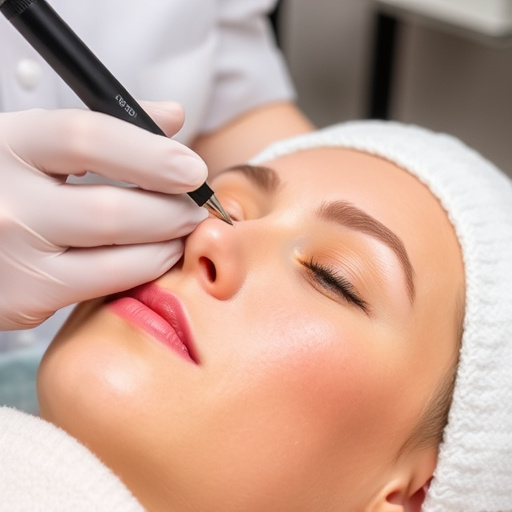
Hormonal acne is a common skin concern that arises due to fluctuations in hormone levels, primarily during puberty, menstruation, pregnancy, or menopause. It’s important to understand that this type of acne isn’t just about excess oil production; it’s linked to changes in androgen hormones, which can cause the sebaceous glands to produce more sebum. This, in turn, clogs pores and leads to inflammation, resulting in breakouts.
Identifying triggers is crucial for effective hormonal acne treatment. Various factors, including stress, diet (high glycemic index foods, dairy products), and certain medications, can exacerbate the condition. Moreover, some aesthetic treatments like chemical peels or skin brightening procedures might also trigger hormonal acne in susceptible individuals. Recognizing these causes allows for better management and, if necessary, endocrinologist support to address underlying hormonal imbalances.
Diagnosing Hormonal Imbalances for Effective Treatment
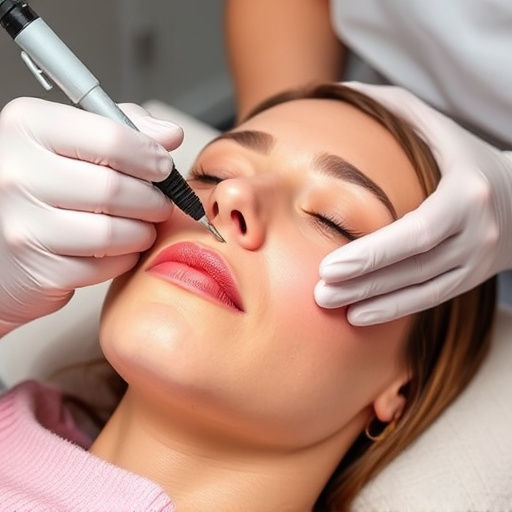
Diagnosing hormonal imbalances is a crucial step in effective hormonal acne treatment. It involves a comprehensive assessment by a qualified endocrinologist who may order blood tests, analyze symptoms, and consider medical history to identify underlying causes such as polycystic ovary syndrome (PCOS), thyroid disorders, or other endocrine conditions. Accurate diagnosis ensures that the right non-surgical treatments, like skin brightening and wrinkle reduction therapies, can be prescribed alongside hormonal adjustments for optimal results in managing hormonal acne.
Early intervention and accurate diagnosis are key to preventing severe skin damage caused by prolonged hormonal imbalances. Endocrinologists play a vital role in navigating this complex landscape, offering guidance on lifestyle changes, prescription medications, or even exploring advanced non-surgical treatments to restore clear, healthy skin.
When Medical Intervention and Endocrinologist Support Are Necessary
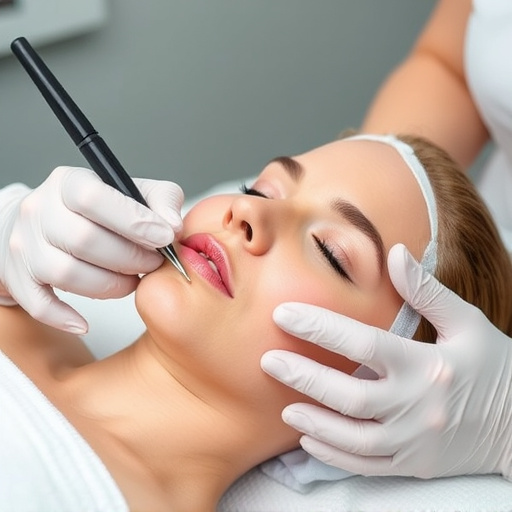
When dealing with hormonal acne, seeking medical intervention is often crucial for effective treatment and management. While over-the-counter products and at-home facial treatments can offer temporary relief, persistent or severe cases may require the expertise of a healthcare professional. An endocrinologist plays a significant role in diagnosing and treating hormonal imbalances that contribute to acne formation. They can identify underlying conditions like polycystic ovary syndrome (PCOS) or thyroid disorders, which are common causes of hormonal acne.
Endocrinologist support is particularly important for tailored treatment plans. These specialists can prescribe targeted medications to regulate hormones, reduce inflammation, and clear skin. Additionally, they may recommend medical spa services that incorporate advanced technologies and treatments like light therapy or specialized chemical peels for enhanced skin brightening. Such interventions can provide lasting results and significantly improve the overall quality of life for individuals struggling with hormonal acne.
Hormonal acne treatment often requires a comprehensive approach, especially when underlying endocrinological issues are at play. By understanding the causes, diagnosing imbalances, and recognizing when medical intervention is necessary, individuals can effectively manage their skin health. Consulting an endocrinologist can provide specialized support, ensuring personalized treatments that address both the acne and any hormonal discrepancies. This collaborative effort empowers individuals to achieve clear, healthy skin and overall well-being.









